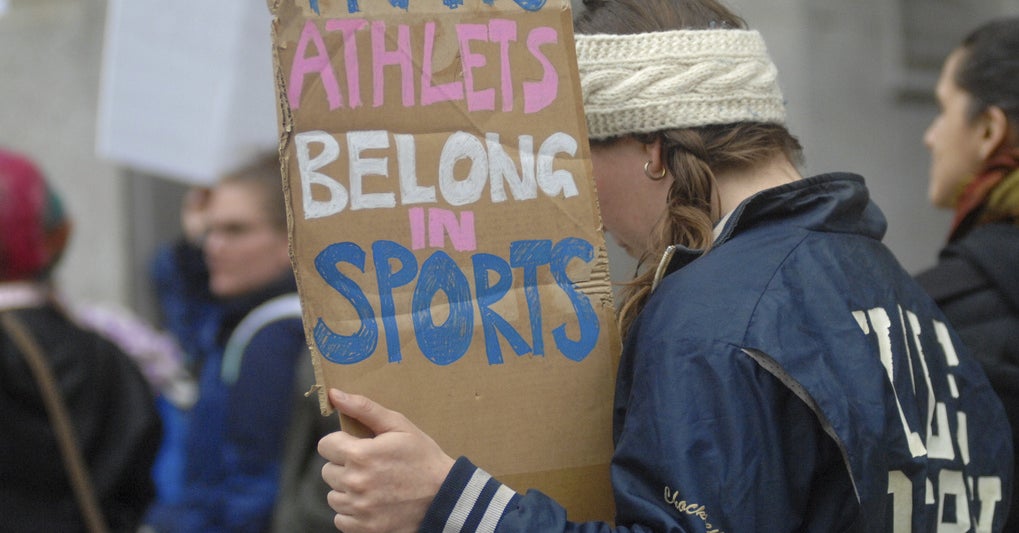In a significant policy shift, the Biden administration recently proposed new regulations under Title IX, aiming to reshape the landscape of school sports participation for transgender athletes. This move, set against a backdrop of burgeoning state-level prohibitions and ongoing legal battles, seeks to strike a balance between inclusion and competition integrity. However, the proposal has ignited a storm of reactions, ranging from cautious endorsement to vehement opposition, highlighting the deep divides on this contentious issue.
Title IX and its latest amendments are poised to prevent total bans on transgender athletes in educational sports, but they would allow certain restrictions for transgender participants in competitive high school and college sports under specific conditions. This nuanced approach reflects the administration’s attempt to navigate the complex interplay between fairness in competitive sports and anti-discrimination principles.
The timing of this proposal is particularly notable, coming shortly after a Supreme Court decision that allowed a 12-year-old transgender girl to continue competing in track and cross-country while legal challenges to West Virginia’s trans athlete ban proceed. This judicial backdrop underscores the ongoing legal tensions surrounding state actions against transgender participants in school athletics.
These proposed regulations have emerged in a climate where numerous states have enacted or are considering legislation to block the participation of transgender athletes in sports aligning with their gender identity. Advocates for transgender rights argue that such measures are discriminatory and violate the spirit of Title IX, which guards against sex discrimination in educational programs receiving federal funding.
According to the U.S. Education Department, the rationale for the proposed modification of Title IX regulations centers on the need to develop criteria for team eligibility that uphold key educational objectives. These include ensuring fairness in competition and preventing sports-related injuries. The proposed rules emphasize that eligibility determinations for transgender athletes should minimize potential harm to these students, adapting the criteria based on the sport in question, the level of competition, and educational level.
Despite these intentions, the response from transgender rights activists suggests a mix of apprehension and frustration. Erin Reed, a transgender activist and journalist from Washington, D.C., who closely tracks anti-trans legislation, expressed concern that the new guidelines might inadvertently provide a framework for schools to impose bans under the guise of educational purposes while still adhering to federal law.
Reed’s concerns are amplified by the specifics of the guidelines which, while challenging to justify at the elementary level, leave ambiguous how high school and college settings might implement such rules without clear directives against discrimination. This ambiguity, according to Reed, aligns with conservative arguments and might be perceived as a concession by the Biden administration to right-wing viewpoints, potentially feeling like a betrayal to the transgender community.
Moreover, the proposed regulations suggest that schools could use documents such as birth certificates or drivers’ licenses and might require physical examinations or medical testing related to a student’s sex to restrict a transgender student’s sports participation consistent with their gender identity. This has raised serious privacy concerns and fears about invasive procedures, reminiscent of recent legislative actions in states like Kansas.
Melanie Willingham-Jaggers, the executive director of GLSEN, highlighted the need for eligibility criteria to be free from biased science or bigotry and to serve legitimate educational purposes. They stressed that these standards should ensure no student, regardless of their gender identity, is denied the chance to participate in school sports. However, they also noted the challenging political climate marked by escalating anti-transgender rhetoric and policies, which could affect the enforcement of these new rules.
When asked about enforcement, particularly in states that have passed outright bans on transgender athletes, the Education Department reaffirmed the supremacy of federal civil rights law. They indicated that non-compliant institutions might face fund withholding measures to prevent federal dollars from being used to discriminate against students.
The debate also reached the White House, with press secretary Karine Jean-Pierre addressing the broader state of LGBTQ rights and reinforcing the administration’s commitment to these communities amidst increasing legislative attacks.
However, Republican criticism was swift and fierce, framing the Biden administration’s stance as an attack on women’s sports and traditional Title IX protections. Representative Andrew Clyde and Senator Marsha Blackburn were among several prominent voices decrying the new rule as an overreach and a threat to the competitive fairness in women’s sports.
The proposal is open for public comment for 30 days, with the department aiming to finalize the rule by May. As this period unfolds, it is clear that the debate over transgender athletes’ rights, educational policies, and the essence of Title IX will continue to evoke strong and divergent opinions across the political and social spectrum, reflecting broader national conflicts over gender, sports, and education rights.









